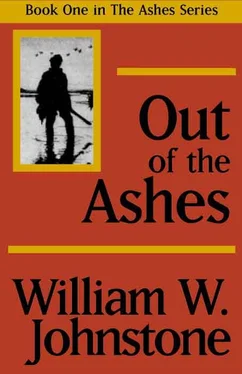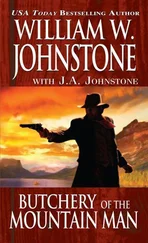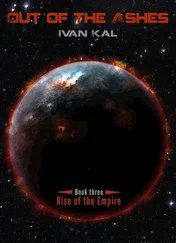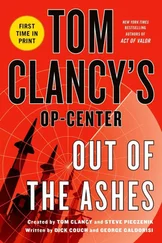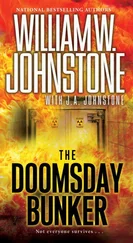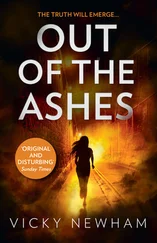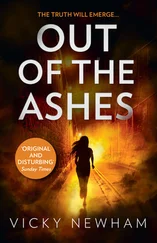And his dad would laugh in that big hearty way of his. Good, solid country people.
Ben missed his parents, knew he would have to take some time off and visit them—soon. They were both getting up there in years. Both in good health… but, one never knew when the hands of time would grow too heavy and lose their grip.
Ben didn’t like to think about that.
As he drove, Ben looked at the countryside, and at the houses he passed. Something seemed… well, odd about them. They looked… deserted, if that was the right choice of words. He shook his head. “My imagination,” he said.
Ben wasn’t a rich man—far from it. But he made enough from his efforts to live in comfort. His home was paid for, he had nice furniture, deep, rich carpet, and all the other accouterments that made life a bit more than merely an existence.
Ben Raines also drank himself into a quiet stupor every night of the week. Including Sundays.
But he was one of those rare people who never suffered a hangover. He could not remember ever having one. And he hedged whenever he would question himself about why he drank so much. He never would admit his was a lonely life.
Writers drink, he would say.
Bullshit, his mind would reply.
It was never a very stimulating or productive self-conversation.
Sunday morning radio programming in most parts of the rural South is, at best, dismal—alternating (depending upon the stations one chose) between hillbillies yodeling praise to the Lord, black gospel groups shouting and stomping praise to the Lord, and nasal preachers hem-hawing and gulping praise to, or from, the Lord. Some of them speaking in tongues.
Ben never turned on his radio on Sunday mornings. And TV was just as bad. It was one of his great gripes that public broadcasting, in radio form, did not get into the area in which he lived.
Ben lived out in the country, literally. About ten miles outside of Morriston, a small town located at the bottom of the Delta of Louisiana. The town had a population of eight thousand: fifty percent black, fifty percent white. No industry. Lots of bars, black and white; never the twain shall meet. Music in the bars was soul or country. That was it. So, Pavarotti, do not waste your time coming to the Delta, unless you first appear on “Barbed-Wire Hoedown,” yodeling; or on “Boogie Funky Wagon,” beating on a drum and shaking your tushie.
It was gracious Southern living at its best and worst. Half-million-dollar homes and two-hundred-dollar shacks. Cadillacs and food stamps. Cotton, rice, soybeans, and wheat.
And football.
Ben cut his eyes to the ditch by the side of the road and his thoughts were abruptly returned to the present. He jammed on the brakes, sliding to a halt.
That was a body in the ditch.
He got out of his truck and, stepping over the water (when had it rained?), walked to the ditch and knelt by the man. The man had been dead at least a week; his corpse was blackened and stinking.
He walked back to his truck and flipped on the CB radio. “Give me a Montgomery Parish Deputy or a state trooper.”
Nothing.
He repeated his call and received the same scratchy emptiness from the speaker.
His CB was a good one and he had had it on… a couple of days before the wasps hit him.
“Break-one-nine for a radio check,” he said.
Nothing.
He monitored all channels and received the same on all of them. Nothing.
He sat in his truck for a moment, reviewing what he could remember of the past week, before he was stung. He had been shopping, was it Wednesday or Thursday? Had he listened to a radio or TV since? No, not since the night he had gotten drunk listening to the TV newspeople flap their gums about nuclear war.
Ben looked around him, at the clear day, sunny and bright. Obviously, no nuclear war had occurred. He suddenly felt uneasy. Or, had it? When had he heard those horns honking so frantically? He shook his head. Kids, probably, cutting up.
He glanced at the body in the ditch and then at his watch. Almost noon. “Well, this is silly!” he said. “There is something wrong with my radio, that’s all.”
Then he thought about the radio in his truck. He turned it on, tuning in to the local station first. Nothing.
He punched all the preset buttons. Nothing. He spun the dial left to right, then went slowly back.
Nothing.
A finger of something very close to fear touched him. He shook it off. But something deep within him, some… sense of warning prompted him to punch open the glove compartment and take out the .38 special he always carried. Ben had blatantly ignored the government order to turn in all handguns, as, he suspected, had several million others. Ben despised Sen. Hilton Logan and everything he stood for. Logan was a dove—Ben was a hawk. Logan was a liberal—Ben was a conservative. A conservative in most of his thinking.
He checked the cylinder of the .38. All full. He shoved the pistol behind his belt and put the truck in gear. He had not recognized the dead man.
A mile further and he turned onto the road that was just inside the city limits. A half-mile further, on the edge of town, in an open field, Ben slowed to watch several large birds, vultures, rise from the ground at the sound of his truck. They flapped ponderously away. Full and heavy. Ben had only to glance quickly to see what they had been feeding upon: bodies.
This time it was fear that touched him—open, naked fear. “Did the balloon go up?” he asked aloud. “If so, why was I spared?”
He could not answer his question.
He drove on until he could drive no further. Two cars were blocking the street. Ben did not have to get out of his truck to see that the occupants’ bodies were blackened and decomposing in death.
He backed up, turned around, and drove down a side street until he came to a residential area. He saw no signs of human life, but neither did he see any bodies. He wound his way to the service station and pulled into the drive. There, Ben sat in numb silence, staring at the windows of the Exxon station. The windows were smashed, broken; glass littered the drive. The body of his friend lay sprawled half in, half out of the door.
Ben got out of his truck slowly, not really believing all this was happening—had happened. He corrected his thinking. He knelt down beside the man. Mr. Harnack was stiff and black and stinking. Dogs had gnawed on him.
Ben stepped over the body and walked to the phone. He punched out the numbers of the police department, letting the phone ring twenty times. No answer. He called the sheriff’s department. Same results.
Ben felt the butt of the .38, and the touch of the wood was reassuring.
He stood in the doorway and listened intently. He could not hear one human sound coming from the town.
He walked to the desk and turned on the small TV. He got the same results from every channel. And this was cable, coming from Chicago and Atlanta. Nothing from Chicago. Blank screen. The others had the civil defense emblem on the screen, but nothing to explain why.
Bold Strike. The words returned to him. Hunt a hole, partner. “I’m dreaming,” Ben said, his voice sounding strange amid the silence and the death. “What the hell happened? It has to be a dream.”
But he knew he was not dreaming.
He thought, this is nationwide—worldwide. Those thoughts chilled him, bringing beads of sweat to his forehead. “Jesus, am I the last man on earth?”
Then the words of that grizzled sergeant drifted back to Ben as he stood in the doorway, looking out at the mute gas pumps. “Survive is the name of this game, men. Fuck a bunch of candy-assed civilians. When the balloon goes up—and it will go up, believe that—most civilians won’t make it, ‘cause they don’t know their ass from peanut butter about stayin’ alive. And what is so sickenin’ is, they don’t wanna know. They’re content. They’ve got their pretty little houses, two cars in the garage, membership in the country club, and they think being tough means playing football. As far as they’re concerned, everything is aces up. But they don’t know the meaning of tough. They’ll be the victims in any holocaust. But I’m gonna teach you men what tough is—mentally and physically. And when I’m through with you, you’ll survive. If you men make it through the first wave, if you don’t take one nose-on, most of you will survive.”
Читать дальше
